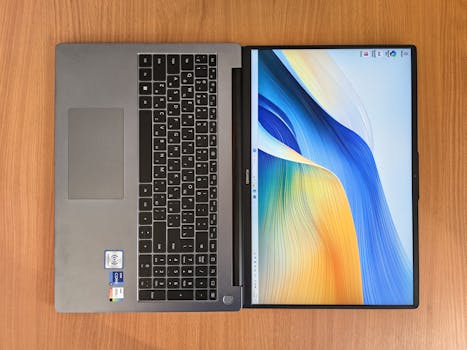Tendências
5G no Brasil: O que realmente mudou na nossa realidade?
Advertisement
5G mudou alguma coisa na prática?
O advento da tecnologia 5G no Brasil gerou grandes expectativas entre consumidores e especialistas. A promessa de velocidades ultrarrápidas e conexão mais estável chamou a atenção de muitos. Mas, na prática, o que realmente mudou com a chegada do 5G?
Com as redes 4G ainda se expandindo, muitos se perguntam sobre as reais vantagens do 5G. Este novo padrão de comunicação móvel traz avanços significativos, especialmente em áreas específicas. A comparação entre as gerações de conectividade nos ajuda a entender melhor essas mudanças.
Este artigo explora as evoluções que o 5G trouxe para diversos setores. Abordaremos como essa tecnologia impactou os negócios, a educação, e até mesmo o entretenimento. Descubra se o hype em torno do 5G é verdadeiramente justificado.
Velocidade e Desempenho
A velocidade do 5G é um dos seus maiores atrativos. A capacidade de transmitir dados a uma taxa até 100 vezes mais rápida que o 4G é um fato impressionante. Isso não se traduz apenas em downloads rápidos.
As aplicações em tempo real, como streaming de vídeos em alta definição, são beneficiadas significativamente. Além disso, essa melhora na velocidade impacta o uso de plataformas de trabalho remoto. Equipes podem colaborar em projetos sem interrupções ou travamentos.
A velocidade de resposta (latência) também é crucial. O 5G oferece uma latência que pode chegar a apenas 1 milissegundo. Isso é essencial para aplicações que demandam tempo real, como cirurgias remotas e jogos online.
A comparação prática entre 4G e 5G é evidente em áreas com alta concentração de usuários. Em eventos, como shows e jogos, o 5G se apresenta como solução para congestionamento de rede. Experiências imersivas ganharam nova vida com a nova tecnologia.
Em suma, a velocidade e desempenho do 5G mudaram a forma como usamos a internet. Essas melhorias não são apenas tecnológicas, mas impactam diretamente a qualidade de vida dos usuários.
Impacto no Setor Empresarial
O 5G trouxe alterações significativas para o ambiente empresarial. As empresas estão adotando essa tecnologia para impulsionar suas operações. Desde a automação industrial até o suporte à inovação, os benefícios são visíveis.
A conectividade robusta permite que máquinas se comuniquem em tempo real. Isso transforma a logística e a produção, promovendo uma maior eficiência operacional. Processos que antes consumiam muito tempo agora são acelerados com a nova rede.
Além disso, o 5G facilita o uso de tecnologias emergentes, como o IoT (Internet das Coisas). Dispositivos conectados podem coletar e analisar dados instantaneamente. Isso gera insights valiosos para a tomada de decisões.
O suporte a aplicações de inteligência artificial também se destaca. Com o 5G, algoritmos de IA podem operar de maneira mais eficaz, processando dados em tempo real. Isso leva a uma personalização de serviços como nunca antes.
Portanto, o impacto do 5G no setor empresarial vai além da conectividade. As transformações que ele possibilita têm o potencial de redefinir mercados e criar novas oportunidades de negócios.
Educação e Acesso ao Conhecimento
A educação no Brasil passou por uma enorme transformação com a pandemia. O 5G promete ampliar ainda mais essa evolução. A melhoria na conectividade pode democratizar o acesso ao conhecimento.
Com a tecnologia 5G, aulas online tornam-se mais interativas e eficientes. Alunos podem acessar conteúdos ricos em multimídia sem interrupções. Isso melhora a experiência de aprendizado e amplifica o engajamento.
Além disso, o 5G permite a implementação de realidade aumentada e virtual em sala de aula. Isso facilita experiências de aprendizado imersivas. Estudantes podem explorar conceitos complexos de forma mais prática.
Instituições educacionais também se beneficiam da possibilidade de administrar dados em larga escala. Relatórios de desempenho podem ser gerados de maneira mais rápida e precisa. Isso ajuda a ajustar o ensino às necessidades individuais dos alunos.
Em síntese, a educação é uma das áreas que mais se beneficia do 5G. O acesso facilitado a materiais didáticos e novas experiências de aprendizado promovem uma verdadeira revolução educacional.
Entretenimento e Mídia
O setor de entretenimento é outro que experimenta mudanças devido ao 5G. A possibilidade de streaming em alta qualidade está mais acessível. Isso é um alívio para quem ama consumir conteúdo online.
Serviços como Netflix e plataformas de games estão se adaptando para oferecer experiências mais ricas. Com o 5G, as transmissões ao vivo ganham qualidade sem interrupções, essencial em eventos esportivos e shows.
Além disso, o 5G facilita o crescimento do jogo em nuvem. Usuários podem jogar títulos pesados diretamente na nuvem, sem a necessidade de consoles ou downloads demorados. A liberdade e o acesso são aspectos revolucionários dessa tecnologia.
Os criadores de conteúdo também veem novas oportunidades. A possibilidade de enviar vídeos em alta definição rapidamente para plataformas sociais é um diferencial. Isso pode ajudar a aumentar a visibilidade e engajamento do público.
Sendo assim, o 5G redefine as fronteiras do entretenimento. O acesso à mídia e a nova forma de consumo estão em constante evolução, se adaptando às necessidades dos usuários.
Mobilidade e Transporte
A mobilidade urbana enfrenta desafios constantes, especialmente em grandes cidades brasileiras. O 5G pode oferecer soluções inovadoras. A conectividade em tempo real pode otimizar sistemas de transporte público.
Veículos autônomos são um conceito que está se aproximando da realidade. Com a internet das coisas, os carros podem se comunicar entre si. Isso aumenta a segurança e melhora o fluxo do tráfego.
A monitorização de condições de trânsito em tempo real também é uma possibilidade. Aplicativos podem fornecer informações precisas sobre congestionamentos e alternativas de rotas. Isso beneficia motoristas e passageiros.
Além disso, o 5G pode melhorar a logística de entregas. Empresas estão adotando soluções que utilizam essa tecnologia para otimizar suas rotas e prazos de entrega. A eficiência operacional aumenta significativamente.
Assim, a mobilidade e o transporte são áreas que podem se transformar com o 5G. Melhorias na infraestrutura e conectividade podem resultar em um sistema de transporte mais eficiente e seguro.
Desafios e Considerações Finais
Embora o 5G traga muitas vantagens, alguns desafios precisam ser abordados. A infraestrutura necessária é uma das principais preocupações. É essencial garantir que as redes 5G sejam ampliadas de forma abrangente.
A segurança dos dados também é um tema relevante. Com mais dispositivos conectados, o risco de ataques cibernéticos aumenta. É necessário implementar medidas robustas para proteger informações dos usuários.
Por outro lado, o custo é um fator que pode desacelerar a adoção do 5G. Investimentos em infraestrutura e dispositivos podem ser altos. Garantir o acesso equitativo é crucial para a inclusão digital.
A regulamentação governamental também desempenha um papel importante. É fundamental estabelecer padrões claros e diretrizes para o uso dessa tecnologia. A colaboração entre os setores público e privado é necessária.
Portanto, embora os desafios existam, as oportunidades que o 5G apresenta são inegáveis. É um passo importante em direção a um futuro mais conectado e eficiente.
Conclusão
O 5G mudou, e continuará mudando, a maneira como interagimos com a tecnologia. Desde a velocidade até o impacto no cotidiano, sua presença é palpável. No entanto, os desafios associados à sua implementação requerem atenção.
A transformação em setores como educação, empresarial e entretenimento demonstra o potencial do 5G. Ele não é apenas uma evolução tecnológica, mas uma revolução cultural. Portanto, é fundamental abraçar essas mudanças para um futuro melhor.
A adoção do 5G está apenas começando. As informações e experiências que surgem à medida que essa tecnologia se etabliem são promissoras. O futuro é brilhante para aqueles que se adaptam e aproveitam essas novas oportunidades.
O 5G já trouxe muitas mudanças, mas seu verdadeiro potencial ainda está por ser explorado. Os próximos anos serão cruciais para moldar o caminho dessa inovadora tecnologia. Prepare-se conforme o 5G continua a transformar a sociedade.
| Aspecto | 4G | 5G |
|---|---|---|
| Velocidade de Download | Até 100 Mbps | Até 10 Gbps |
| Latência | 50-100 ms | 1 ms |
| Capacidade de Dispositivos | 2.000 dispositivos/km² | 1.000.000 dispositivos/km² |
| Eficiência Energética | Moderada | Melhorada |
| Aplicações Impulsionadas | Streaming e navegação | IoT, jogos em nuvem, veículos autônomos |
- Aumento significativo na velocidade de internet.
- Baixa latência que impulsiona experiências em tempo real.
- Capacidade para suportar mais dispositivos conectados.
- Novas aplicações e serviços com foco em inovação.
- Desafios como segurança e infraestrutura ainda precisam ser enfrentados.





